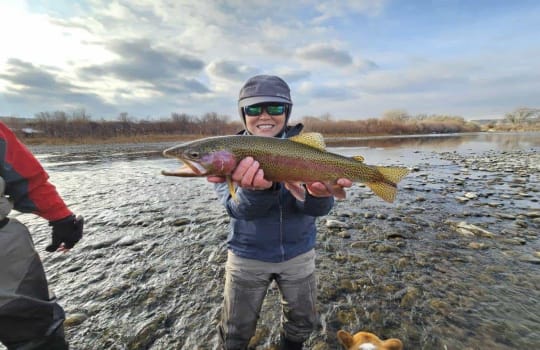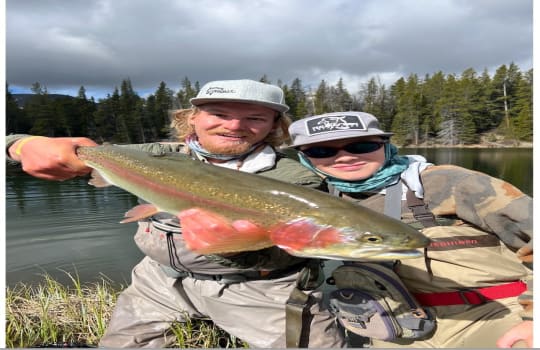 Caddis Fies
Caddis Fies
We have been waiting for it, and now it is finally upon us. The Mother’s Day Caddis Hatch on the Arkansas River, and the emergence of the first caddis on the South Platte River…who doesn’t love a good caddis hatch?
On our home waters of the South Platte, a good rule of thumb for the timing of the Caddis is when the Iris’s start to bloom which is usually sometime in May…depending on the weather. Although, I did see a few on the South Platte at Decker’s in mid April though not many.
Speaking of which, have you all noticed the abundance of caddis cases in the South Platte lately? Looks like it’s going to be a good year for Caddis on the South Platte!
The latest information I have received indicates that the Caddis are already in full swing this year on the Arkansas River, which is earlier than last year due to the milder winter we’ve had…so be ready to go.
The Caddis species that we are most familiar with is the Brachycentrus Occidentalis, or more commonly referred to as the “Mother’s Day” Caddis because of its appearance usually around Mother’s Day. However, more often than not, it usually appears much earlier…usually in mid to late April. This is the “Hatch” that the Arkansas River is most famous for. The “Inflatus Rubber” hatch being the second most famous. The Caddis hatch usually starts in Canyon City, typically around the end of April, and steadily works its way upstream to Salida. Figure on a river mile or more a day in order to stay ahead of it, but you can check with any of the local fly shops for information on where the hatch is on a daily basis.
You really want to be slightly ahead of the main hatch when you fish even though the temptation to stand in the middle of a million bugs can be your idea of fun? Seriously, trying to compete with a million naturals is an effort in futility. You want to place yourself upstream of the main hatch where the fish are hungry, eager and expecting the arrival of the main hatch. Your imitation won’t be competing with millions of naturals though you should expect to see some caddis on the water. Your imitation will be readily accepted by scores of eager, hungry fish waiting expectantly to gorge on the coming feast.
Okay, so how to fish this hatch? Well, you could start out in the morning with a Golden Stone imitation with a caddis larva or pupa imitation drifting off the back, as the morning progresses and you get closer to feeding time you could switch to a surface imitation with a pupa hanging off the back about 20 – 24 inches or so. When the main feeding time occurs simply go to a dry fly, or double caddis dry fly rig and enjoy the action on the surface.
So, what are the best caddis patterns to use? That is a tough question, there are many patterns that work well. The traditional Elk Wing Caddis works very well on the surface, Lafontaine’s Sparkle Pupa is an excellent pupa imitation. The three patterns that I find most productive are; Puterbaugh’s Foam Caddis, Larry’s Better Caddis and Barr’s Graphic Caddis, all are very productive and easy to tie…and they work very well! Good luck, good tying…and tight lines!
Geno





